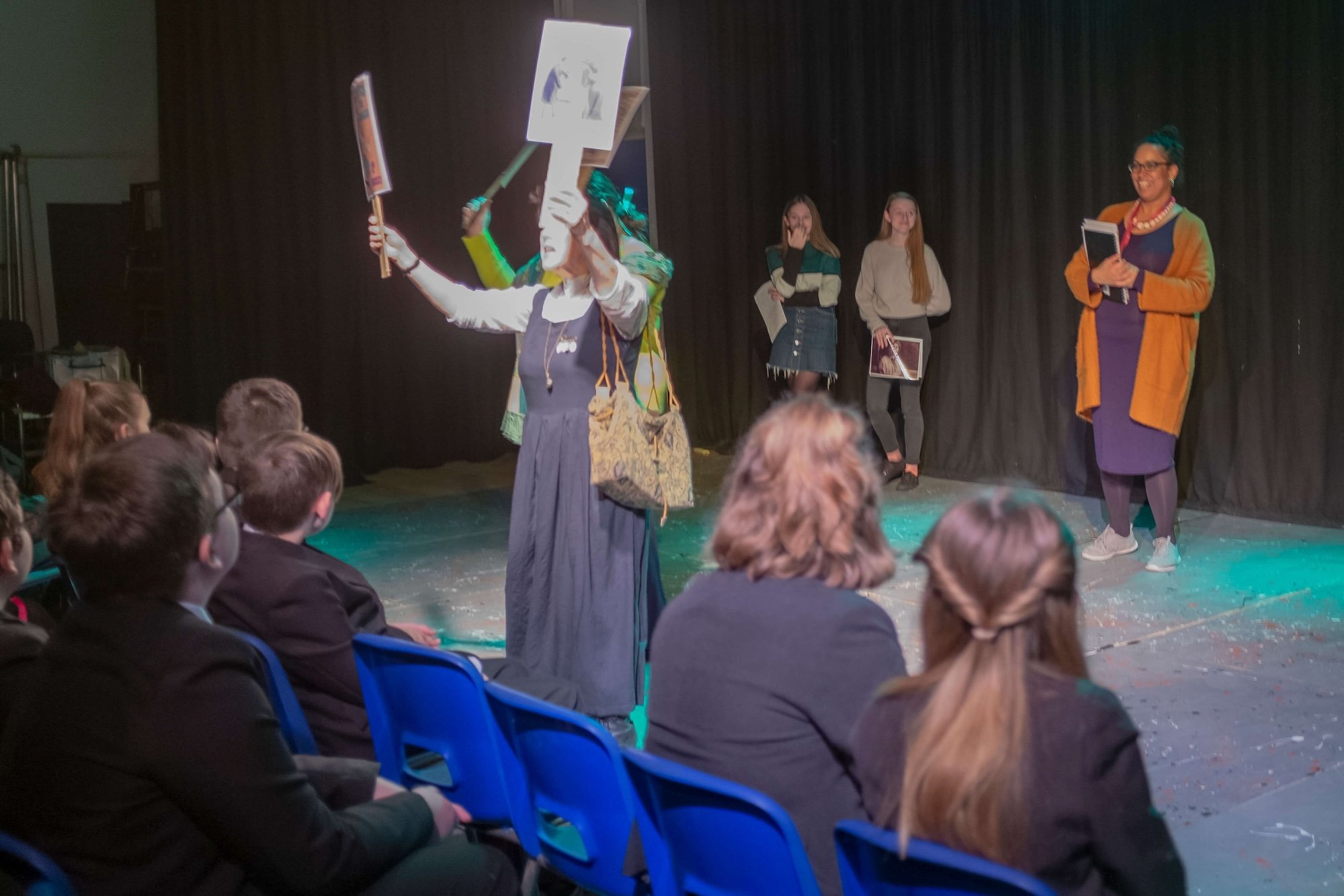
Justice and Equality for All
As part of the Women’s Vote Centenary project we have developed downloadable teaching materials around the right to vote, women’s suffrage and gender equality.
We look through the eyes of Emmeline Pankhurst and the Start of the Suffragette Movement of the early 20th century and Emma Watson and the HeForShe Movement of the early 21st century. Both women and campaigns they supported were chosen to help explore change and progress in women’s rights and gender equality over the past 100 years. We wanted to hear women’s voices speaking about choice, representation and participation to make a difference and fight for justice and equality for all.
There are many organisations and campaigns for women’s rights and gender equality in the UK and around the world. A good starting place is the 17 UN Sustainable Global Development Goals. They are an urgent call for action by all countries to end poverty, improve health and education, reduce inequality, build economic growth, tackle climate change and increase environmental protection. Goal 5 calls for us to achieve gender equality by 2030 and empower all women and girls. How different might the world be in by 2030?
The following activities are linked primarily to:
History – women’s suffrage, liberal reform, social and cultural change in post-war Britain
Citizenship – democracy and government, identity and diversity
Politics – extension of the franchise, social reform
Sociology – social issues, feminism, power and inequality
But can also link to:
English – language techniques, writing for an audience
Drama – role play, thought tracking
Activities
History/Citizenship/Politics/Sociology
Present Emmeline Pankhurst and the Suffragette movement to the class using the mini-biographies, photos and quotes. Emmeline Pankhurst was not the only suffragette and it’s worth mentioning other leaders including Christabel Pankhurst, her daughter, Millicent Fawcett, Emily Wilding Davis and Sophia Duleep Singh to mention but a few. Present Emma Watson and the HeForShe campaign by the UN to achieve gender equality. Emma Watson is just one of the ambassadors for this campaign. It’s worth mentioning Barack Obama, Anne Hathaway, Simon Pegg and Antonio Manuel de Oliveira Guterres are also featured in the campaign. Students can then further their research using the useful websites. They can then use the template to compare and contrast both women and movements to measure progress and reform in women’s rights and gender equality. They can work in pairs or work on one campaign and then match up with another student who is working on the other campaign. They can also watch the short film of Emma Watson launching the HeForShe campaign in 2014 as part of their research. They can choose from the selection of campaign posters to look at differences in language and images and explore the question of how much progress has been made towards gender equality over the past 100 years?
English – language techniques, writing for an audience
Using the same resources and introduction as with the History/ Politics/ Sociology/ Citizenship activity but students can concentrate more on language, image and audience by comparing and contrasting the campaign posters and key messaging of the Suffragette and HeForShe campaign to assess their effectiveness. They can create their own manifesto reflecting their ideas about having your voice heard about what is important to them, campaigning for a better future, and reflecting their identity as a female or male young person or whichever identity they wish to choose, having studied the techniques and strategies of these two leading champions. Use some of the example manifestos to help them write about what they want, or need, to happen.
Drama – role play, thought tracking
Using the same resources and introduction as with the History/ Politics/ Sociology/ Citizenship activity, students can use more role-play, thought tracking and hot seating to bring the characters alive and promote deeper questioning of their ideas and methods. They can watch the short film of Emma Watson launching the HeForShe campaign and evaluate her performance. Then create a follow on scene where she is interviewed by the world’s media wanting to provoke her, or support her, and pause the action to explore tone and character. They can create a short piece of dialogue between Emma and a reporter to explore their characters and the issues deeper. Emma Watson has had to deal with the press from a very early age as a successful actress and leading public figure. What coping mechanisms has she evolved?
Teacher guidance
You will need to ensure your classroom is a safe space to talk about gender issues. There is a lot of language around gender, transgender and the use of male and female that can be discussed. There are also many perspectives on the role of men and women from different faiths and cultural traditions. Respect is key and listening to each other. Model respectful language. Avoid using stereotypes, assumptions and generalisations, ‘all’ and ‘every’ can be over used. Students need to be specific and personal ‘in my opinion’ and ‘in this example.’ Asking questions about where opinions come from can help this students be more specific and relate it more to their personal experience and help avoid stereotypes and generalisations.
Throughout the topic you can start and finish with big questions to reflect on, for example:
• Why does equality matter?
• How can we change how people think?
• What sort of world do we want in 2030?
• Collect your own big questions to explore, discuss or debate.
Our downloadable teaching materials include:
Photos, mini-biographies, quote sheets and useful websites for:
Emmeline Pankhurst – Photo, mini biography, quote sheet
Emma Watson – Photo, mini biography, quote sheet
This short film featuring Emma Watson
Suffragette posters – Poster 1, 2, 3, 4, 5
HeForShe posters – Poster 1, 2, 3, 4, 5
Manifesto examples –
Draft manifesto for GRT communities and young people
Chart to compare Suffragette and HeForShe campaigns
